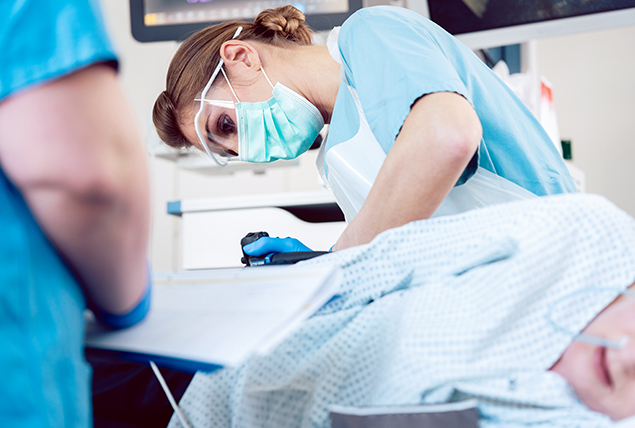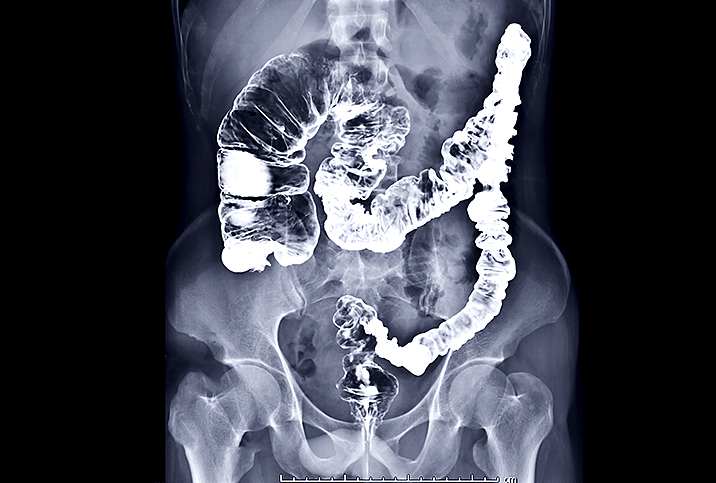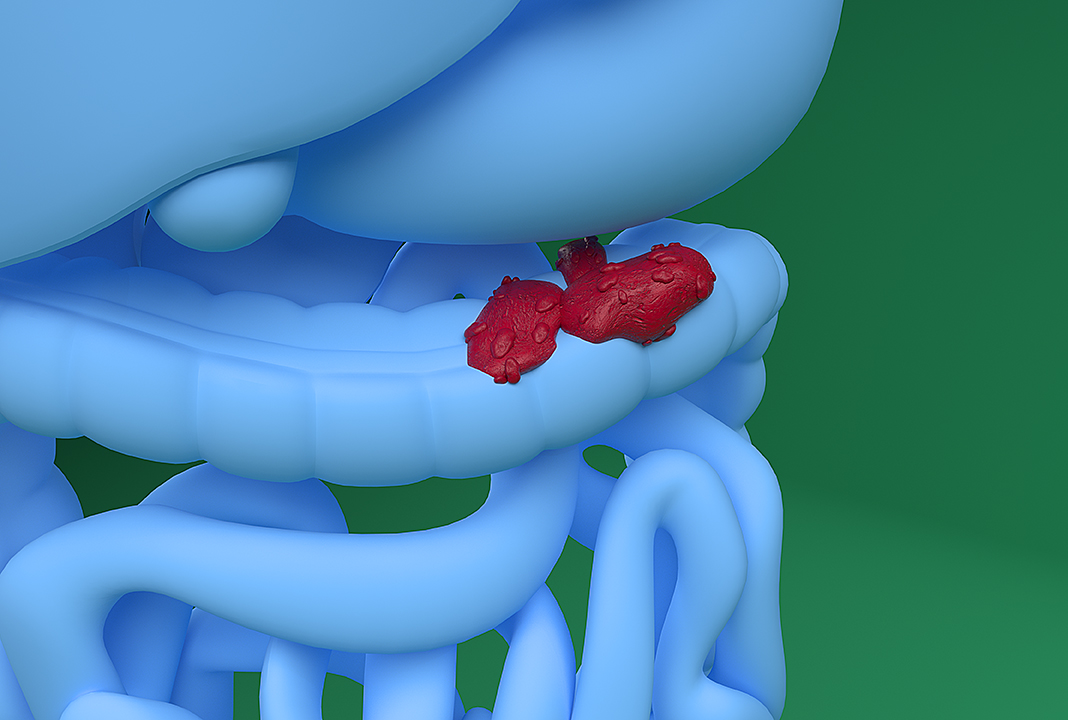Here's What to Expect During Colorectal Cancer Screening

Any conversation about colorectal cancer is bound to veer into the topic of screening, specifically, colonoscopy.
There's a good reason for this. Colorectal cancer is the fourth-most common cancer type in the United States, accounting for an estimated 52,580 deaths in 2022. Fortunately, the development of screening and preventive treatment techniques, including colonoscopy, helps more and more people avoid the worst every year.
Thanks to colonoscopies and other screening protocols, as well as a better understanding of the genetic and lifestyle factors that can lead to colorectal cancer, healthcare providers are able to give individuals comprehensive guidelines on when they need to start considering screening.
We'll look at those screening guidelines, the data that goes into determining the optimal age to begin screening and the technology used for colorectal cancer screening, including the good old colonoscopy, as well as the virtual colonoscopy.
Colorectal cancer screening
You've probably heard of the colonoscopy, the most common, most effective way to assess the health of your colon. This vital test allows your gastroenterologist to see any potentially dangerous growths, called polyps, inside your lower intestinal tract firsthand and treat them.
These abnormal growths start out as tiny, millimeters-wide bumps, but they can develop into cancerous tumors.
Age is a major factor for determining screening recommendations: About 90 percent of people diagnosed with colorectal cancer are age 50 or older.
Apart from age, healthcare providers use a few other parameters to help guide patients regarding when and how often they should be screened.
The American Cancer Society (ACS) recommends that people at average risk for colorectal cancer begin regular screenings when they turn 45. Healthy people who have a life expectancy of 10 years or more should keep up with regular screenings through age 75. Between ages 76 and 85, you should discuss screening with your doctor in light of your preferences, life expectancy, overall health and any relevant findings from previous screenings. After age 85, screening is no longer recommended.
People at average risk do not have the following:
- Personal history of colorectal cancer
- Family history of colorectal cancer
- Personal history of inflammatory bowel diseases, such as Crohn's disease and ulcerative colitis
- Certain hereditary colorectal syndromes, such as Lynch syndrome (hereditary nonpolyposis colon cancer, or HNPCC) or familial adenomatous polyposis (FAP)
- Personal history of radiation treatment in the abdomen or pelvic area
There is also a higher risk among Black people. Men of all races have a slightly higher risk than women. That doesn't let women off the hook for screening.
"Anyone, men and women over 45, should get screened," said Niket Sonpal, M.D., an adjunct assistant professor of clinical medicine at Touro College of Osteopathic Medicine in Harlem in New York City.
After that, your next colonoscopy appointment depends on the number of polyps, he added.
"If you have no polyps, then it's 10 years," Sonpal said. "If you have polyps, it depends on the pathology of the polyps and the size as to when your next one will be."
The technology used for colorectal cancer screening
The primary screening tool for colorectal cancer is colonoscopy. Despite its efficacy, painlessness and ease of use, this valuable screening protocol is the butt of tons of jokes.
The procedure can be maligned, in jest or seriously, by some people, but think about it this way: If you could avoid having a chunk of your colon surgically removed, wouldn't it be worth a 30- to 45-minute exam under sedation that you won't feel or even remember?
"People, for some reason, have a very negative view of colonoscopies, and it's primarily because of the preparation," Sonpal said. "And, unfortunately, with that notion, it's touted to be worse than it really is."
The procedure itself is memorable in that you're not going to remember it. Every center is going to be different.
"Some centers are going to use medicines that put you in 'twilight,' or what we call moderate sedation, and others are going to put you in deep sedation, which is going to put you to sleep completely," Sonpal said.
When everything's ready and you're fully sedated, a narrow tube that contains three even smaller tubes is gently inserted into your anus. This is the colonoscope. Using the camera inside it, the healthcare provider guides the scope to the upper end of your colon, at which point they begin to draw it back down the colon.
All the while, they examine the inner walls of your colon and rectum for any polyps.
The screening isn't only to assess any polyps that might be present, however, it's also meant to remove them immediately.
"It's very important to highlight this: The whole purpose of colonoscopies is to snip out precancerous lesions that are, at this time, benign. But if allowed to grow, they will transform into malignancy," Sonpal said.
If your provider does encounter any suspicious-looking growths, they collect the polyp using a snipping device that's embedded in the scope and have the sample examined by a pathologist.
Stool-based colorectal cancer screening tests
A handful of at-home, stool-based tests for colon cancer have some efficacy. Yes, you can mail a sample of your poop to a lab and get results that show with some accuracy if you have colorectal cancer.
Note the important distinction here: These tests look for hidden blood in your stool that may have come from a cancerous tumor in your colon. This means you already have cancer, not benign precancerous polyps that can be easily snipped out during a colonoscopy to head off cancer.
In addition, you'll need to get a colonoscopy anyway if one of these tests comes back positive.
Virtual colonoscopy
Another alternative to a standard colonoscopy is what's known as a virtual colonoscopy, or CT colonography. This is a test in which a computed tomography (CT) scan or magnetic resonance imaging (MRI) is used to construct a series of images of the inside of your colon and rectum. Specialized software then assembles the images into a comprehensive picture of your colon.
Some advantages to this version of the procedure include the following:
- Less invasive
- Less time: 10 to 15 minutes as opposed to 30 to 45 for a standard colonoscopy
- Less risk of perforating the colon because it's noninvasive
- Doesn't require a sedative
However, just as with stool-based screening, a virtual colonoscopy isn't as sensitive or complete as a standard colonoscopy. If the virtual scan does find anything suspicious, you'll be immediately scheduled for a regular colonoscopy to confirm and, hopefully, remove any suspicious polyps, as the virtual procedure has no means of doing that.
Conclusions
Testing for and preventing this deadly cancer has come far in recent years. But it's up to you to make sure you get the appropriate screening for your circumstances.
Avoiding your gastroenterologist out of misplaced fear doesn't hurt them, but it sure can hurt you.
"The number one thing is that prevention is far better than having to go through the cure," Sonpal said. "As you can imagine, the cure involves massive surgeries, massive chemo, radiation and a lifelong struggle, whereas a simple procedure early in life can prevent all that from happening, because 90 percent of all colon cancer is preventable."
Are you approaching age 45—or maybe you're well past it—and thinking about screening after reading all of this? Good. Talk to your doctor. Don't have a physician you see regularly? You should.
Fortunately, telehealth makes it easy to connect with a doctor who can answer your questions and start to evaluate your situation. Many physicians offer video visits, which are a good way to see a doctor quickly since a lot of them have same-day appointments. From there, follow-up appointments and procedures—maybe a colonoscopy?—are easy to make. Giddy telehealth is an easy-to-use online portal that provides access to hundreds of healthcare professionals whose expertise covers the full scope of medical care.


















